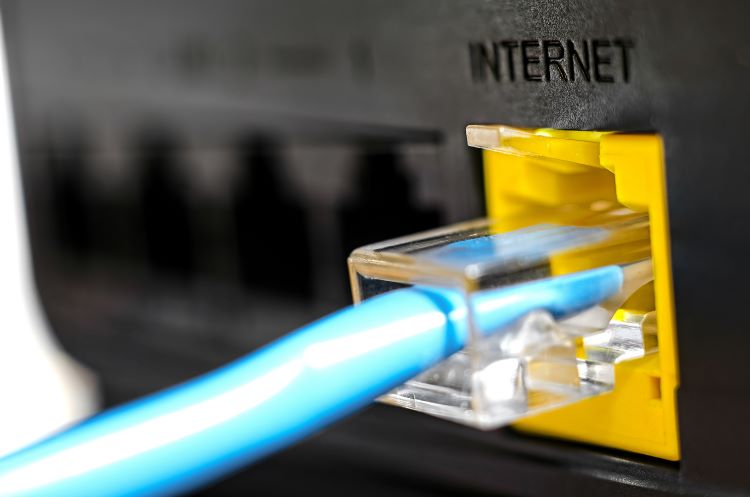Say Goodbye to Expensive Internet and Hello to Internet Without a Landline - A Guide for the US
Ditch complicated setups and embrace simple, budget-friendly internet that doesn’t require a landline. Whether you’re exploring wireless options or fast home Wi-Fi, now could the perfect time to make the switch. Want to know how you can get connected with ease? Discover how and why you should considering switching.

Understanding Your Internet Needs
Before diving into the world of internet providers, it’s crucial to assess your internet needs. Consider how many devices you connect at home and what you primarily use the internet for. Do you stream videos, play online games, or simply browse the web? Each activity has different bandwidth requirements. For example, streaming in HD requires about 5 Mbps, while online gaming may need a stable connection of at least 10 Mbps. Once you have a clear understanding of your requirements, you can start comparing plans to find the most cost-effective option.
Cutting the Cord: Internet at Home Without a Telephone Line
Many consumers are now opting for internet services without the need for a traditional landline. This shift allows for more flexible and often cheaper internet plans. Providers like cable companies or fiber-optic services typically offer standalone internet plans that do not require a home phone line. These plans can save you money and still provide high-speed internet access. Additionally, some areas now have 5G home internet options, which can provide a fast and reliable connection without the need for a telephone line, making it a great option for those looking to cut the cord.
Understanding the Benefits of Internet Without a Landline
Choosing internet without a landline brings several advantages. Firstly, you can save money by eliminating unnecessary phone service charges. Many households find that they rarely use their landlines, making this an easy area to cut costs. Secondly, internet-only plans often come with better speeds and more data options, allowing you to tailor your service to your lifestyle. Lastly, you can enjoy the convenience of managing all your communication needs through your mobile device or internet-based services, such as VoIP, without the constraints of traditional phone services.
Comparing Internet Providers for the Best Deals
When searching for the cheapest internet provider, comparing multiple options is essential. Start by identifying local internet providers in your area. Use comparison websites to gauge pricing and plans. Look for promotions that may offer discounted rates for the first year. Also, be sure to read customer reviews to understand the reliability and customer service quality of each provider. Key factors to consider include installation fees, monthly charges, data caps, and contract lengths. The more you know, the better equipped you will be to make an informed decision.
Useful Tips and Facts about Choosing an Internet Provider
- Always assess your internet needs before selecting a plan.
- Look for promotional rates and bundled services.
- Check for hidden fees associated with installation or equipment rental.
- Consider customer service reviews and reliability ratings.
- Be mindful of data caps; unlimited plans can save you money in the long run.
Comparison of Top Internet Providers in the US
Here’s a brief overview of some leading internet providers, including their estimated costs and benefits:
| Provider | Benefits | Speed (Mbps) | Estimated Price |
|---|---|---|---|
| Xfinity | Wide availability, bundles with TV | Up to 1200 | $50 - $80 |
| AT&T Fiber | High-speed fiber options, no contracts | Up to 500 | $55 - $75 |
| Spectrum | No data caps, high-speed options | Up to 940 | $49.99 - $69.99 |
| Cox | Flexible plans, affordable starter options | Up to 940 | $49.99 - $79.99 |
| Verizon Fios | Fast and reliable fiber service | Up to 940 | $80 - $100 |
Please note that all prices mentioned are estimations, and for accurate information, we recommend conducting your own research and visiting the providers’ websites directly.
Finding the Best Cost-Effective Service
To choose the best cost-effective internet service, start by evaluating your specific needs. Identify how much speed you really require based on your online habits, and look for providers that offer competitive pricing without sacrificing speed. Be sure to consider promotional offers, installation fees, and equipment costs when comparing plans. Finally, reading customer reviews can provide insights into the quality of service you can expect, helping you make a well-informed decision.
Navigating the world of internet providers can be overwhelming, but by assessing your needs and comparing your options carefully, you can find a service that suits both your budget and lifestyle. With the right information and strategies, you can enjoy a reliable internet connection at a price that won’t break the bank.




